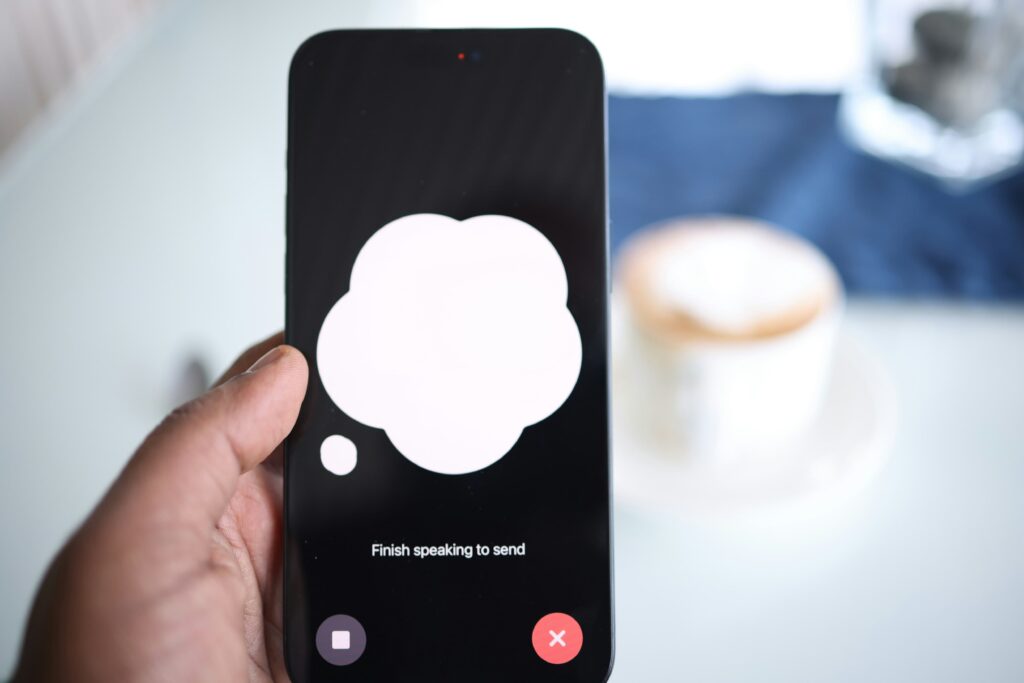Updated: November 18th, 2024
Depending on bilingual employees as interpreters or translators in work environments is tempting, but risky.
When healthcare employees are your bilingual work policy or you use language apps, there are hidden costs. These quick-fix options carry risks and potential public healthcare policy issues – unlike the reliability, accuracy, and compassion of partnering with on-call, expert language professionals.

When leading an organization in any sector, saving money by handling tasks in-house rather than hiring outside experts can provide a sense of fiscal responsibility.And, often, this mindset is beneficial for a business’ budget. However, when working with international clients, non-native language speakers, or at-risk and vulnerable populations, these budget-friendly efforts can lead to bigger problems and unintended consequences.
For instance, free and charitable clinics serve as vital resources for communities, especially for non-English-speaking (NES) and limited-English-proficiency (LEP) patients who need reliable access to healthcare. Non-profit clinics often feel the need to stretch their budgets by relying on shortcuts such as bilingual healthcare staff. All business owners – especially in the non-profit sector – understand these budgetary constraints.
However, costly errors can occur in patient care, leading to severe health consequences, when a provider isn’t able to communicate with a patient empathically, accurately, and in a timely manner. Additionally, healthcare policy (and federal funding) often hinge upon the presence of a professional interpreter versus the skill of a bilingual employee.
Here’s a closer look at the benefits of professional remote interpreting and translation – and the hidden costs that partnering with expert language professionals can help professional organizations and charitable clinics avoid:
Hidden Costs of Relying on Bilingual Staff and Language Apps
1. Loss of Productivity for Bilingual Staff
Most of the time, a bilingual employee is not on staff as a full-time interpreter or translator. Instead, he or she regularly works in some other capacity within their industry, and their expertise is unrelated to interpreting. When you pull that employee away to provide language services, they lose time and rhythm in the role for which they were hired. This can result in a work backlog, missed deadlines, or even poor performance because of the break in their concentration.
In the healthcare industry, many clinics depend on their healthcare providers and bilingual employees to assist with NES and LEP patient communication. While organizations in all industries can suffer when bilingual employees are asked to step in and interpret for clients, the risks are greater in a healthcare work setting when patients’ lives are at stake.
Loss of productivity (perhaps one of the more noticeable, but less life-threatening risks of using bilingual employees as interpreters on a day-to-day basis) in a healthcare setting can slow down clinic workplace operations, creating longer wait times for patients and reducing the clinic’s capacity for other tasks. Over time, this constant disruption can actually increase operational costs more than expected, as well.
2. Errors and Misunderstandings with Automated Translation Tools
With advancements in technology and AI, translation apps and tools may seem like an attractive and inexpensive solution. However, becoming a professional interpreter or translator requires much more than simply being bilingual. Trained language professionals are experienced in communicating information accurately between two languages, and they understand the impact of cultural nuances. Additionally, they often have extensive knowledge of the subject matter for assignments they work on.
Incorrect interpretations or missing information can lead to unsafe or undesirable conditions in the workplace. Language service firms typically also carry errors and omissions (E&O) insurance to cover any deficiencies in the very rare event they occur. Without this E&O insurance, organizations run the risk of increased financial liability if their in-house or quick-fix language solution is in error.
Federal funding can also be lost in some situations if you do not provide your client or patient with a qualified interpreter – not just a bilingual employee lacking the current public healthcare policy’s additional certifications and trainings – who is fully equipped to provide your client/patient with meaningful language access.
“Title VI of the Civil Rights Act of 1964, Section 504 of the Rehabilitation Act of 1973, Title II of the Americans with Disabilities Act, and Section 1557 of the Affordable Care Act prohibit entities receiving federal financial assistance from discrimination on the basis of, among other things, race, color, national origin, and disability. This means covered entities must provide an equal opportunity to participate in and benefit from programs; communications with individuals with disabilities must be as effective as with others; and reasonable steps must be taken to provide meaningful access to people with LEP. Obligations to take steps to provide meaningful access to individuals with LEP also apply to subrecipients of federal financial assistance, who must similarly comply with all applicable civil rights laws.”
–HHS Language Access Plan 2023 policy for bilingual employees and language access
Especially in healthcare contexts, AI tools aren’t specialized for patient care and lack the nuance that can be critical for accurate communication. Even minor misunderstandings can lead to costly mistakes, affecting patient care and risking liability for the clinic. In contrast, a professional remote interpreter is trained to understand and translate complex medical terminology with cultural sensitivity, ensuring that patients fully understand their treatment plans and that healthcare providers receive accurate information from patients.

3. Inflexible Access and Scheduling Limitations
Without a professional language service partner, businesses must rely on apps and the schedules of bilingual employees. While some business sectors may not struggle with this issue as frequently, many non-profit organizations serving at-risk populations need interpretation services available whenever a client or patient 24/7.
When clinics rely on in-house bilingual staff or community volunteers, they’re often bound by strict schedules of their staff. This limitation can result in patients having to reschedule appointments, which not only creates frustration for patients but also impacts the clinic’s efficiency and patient flow. In emergency situations, the consequences can be even more dire if there is not an interpreter on-hand to communicate with the patient.
4. Privacy Violations
Privacy is of the utmost priority for businesses nowadays, particularly for those in the healthcare, human resources, and social service industries. If you pull in a bilingual employee to interpret for a fellow co-worker, that co-worker’s personal information can be at risk of becoming known within your organization.
Professional interpreters are bound by a code of ethics, which contains very strict rules on confidentiality, and many are trained and certified to comply with HIPAA rules governing personal health data. In clinic settings, this is vitally important.
5. Damage to Your Organization’s Reputation
Miscommunication from untrained personnel or non-expert bilingual individuals has the potential to harm your business’ reputation, as clear communication is at the core of every business interaction. Whether you are presenting a sales pitch, onboarding a new client, or providing any other form of written or verbal communication, language barriers can limit you tremendously during initial conversations and damage your business’ reputation during unintentional miscommunication disasters.

By partnering with a professional interpreter or language service, you communicate to your LEP customers, patients and the public that you care enough to communicate clearly and professionally. In a marketing campaign, you communicate that you care about your target audience’s culture and values. You also communicate to your own bilingual employees in healthcare and other industries that you understand current language access policies and value the reasons behind their requirements.
Even if your prospective LEP customers have a basic understanding of English, building a successful relationship with them will be nearly impossible while language barriers persist. To break down those language barriers, a business will need the help of professional interpreters and translators.
Professional Language Services are an Investment that Reduces Long-Term Costs
While expert interpretation and translation services carry an upfront or additional cost, they can reduce long-term expenses associated with errors, miscommunication, staff inefficiencies, and patient scheduling conflicts.
For free and charitable clinics, maximizing resources is critical – but cutting costs in language services by using bilingual employees without certifications and extensive training or free apps may have detrimental and far-reaching consequences. By investing in professional language services, clinics can reduce hidden costs, improve operational efficiency, and ultimately offer a better experience for their NES patients.
Imagine being in a critical situation where understanding every word is vital – whether it’s navigating a medical emergency or finalizing an international business deal. In moments like these, remote interpreters and language translators are the unseen heroes, providing meaningful communication.

Partner with SpokenHere Interpreters & Translators
At SpokenHere, our global team of remote interpreters and specialized translators stands ready to help your organization communicate effectively in over 300 languages and dialects. Our experts understand the nuances of sensitive conversations, whether in healthcare, legal, or business settings, and they approach each interaction with care and professionalism.
Ready to build relationships with meaningful communication? Reach out today to schedule a consultation and discover how our services can support your needs.